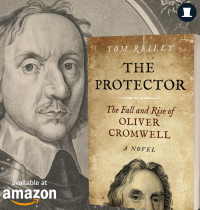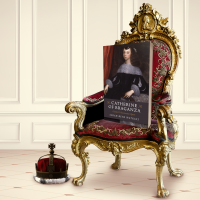
Why history is for everyone…..
By Sarah J. Hodder
Author of The Queens sisters
I found this book well written, easy to read, and full of interesting information. I liked that the author pointed out the role women were expected to play within the household and managing estates, especially when their husbands were away. It is hard to imagine how girls who married so young must have felt when they were expected to move in with in-laws and grow up away from their own families. Sarah Miller
My passion with history officially began around about ten years ago when I started reading more and more about the life of a woman I had always been fascinated by - Anne Boleyn. I read, absorbed, discovered and researched and when I had exhausted her life story, my interest began to spread into all things Tudor and medieval. However, my actual curiosity for history likely began much earlier than that. As a child who lost a parent at a young age, I spent much of my childhood looking backwards – searching for memories, stories, and details of the part of my childhood that I couldn’t retrieve. I still do look back, which is in complete contradiction with my other passion in life, Yoga and holistic living, which teaches us to live in the present. But somehow these two paradoxes fuse together – after all it’s our past that brings us to our present.
As a student, surprisingly history was not one of my chosen subjects. I sometimes wish I could rewind time and change that decision but back then, I recall tedious history lessons focusing on politics of The Cuban Missile Crisis or the First World War, both hugely important times in history, but it wasn’t what engaged me. Social history is very much where my interest lies.
Then a couple of years ago, my fascination with the lives of women in history moved back from the Tudors to the Wars of The Roses. As I had read everything I could on the period, I began to wonder how I could put this knowledge to good use. On the spur of the moment, probably after a glass of wine one evening, I emailed one of my favourite authors for advice, never expecting she would reply. But she did and she gave me invaluable advice and suggested that amongst other things, if I wanted to put my knowledge to good use, perhaps I should write a book. ‘Ridiculous’ I thought, I have no experience in either the field of history or in the field of writing. Sure, I used to work in publishing but the link between that and becoming a fully-fledged author was tenuous! But the seed was planted…. I chose my subject and began to research. Before I knew it, I had an idea (it was a book I wanted to read and couldn’t as it didn’t exist) and I began to write. And that’s where my book on ‘The Queen’s Sisters’ was born.
As my historical potential grew, I began to follow historical sites and authors on social media which at first fired me up and made me feel part of a like-minded community. (I still do follow this community by the way, the moral of this story is not a reflection on any particular site or group). But slowly and surely, I began to feel more and more inadequate and inexperienced. Then a well-known historian was asked a question in social media by a young budding historian. It was a simple question - ‘how do I become a historian?’ The response was pretty much ‘you have to have a degree, and without one you have no chance’. This was in no way the exact wording, but it is what was inferred.
Well, sage advice you might say, and it was, to all youngsters out there who have their life ahead of them. As a huge fan of education and learning, if you can go to university and follow your dream then that’s exactly what you should do. But to me, it was like a huge blow. When you are a working mother, on the wrong side of forty, and you have as much chance of meeting Elvis as you do of getting a degree, this struck me like a bolt of lightning. The world of historians suddenly felt very elitist and out of reach. Disheartened, I put my laptop away, and resigned myself to the fact that history for me would just be a hobby.
I continued to read any historical fiction and non-fiction I could get my hands on but the ‘book’ I had started had been shelved – literally – and not in a library or bookshop!!
It took me a whole year before I encouraged myself to return to writing. To be honest, I hate leaving anything unfinished and so bit by bit, when I had spare time, I continued to write and research, but with no intention of actually doing anything with it. And then when it was finished, I made an impetuous decision one day to send it to a Publisher. I assumed of course they would turn it down. But they didn’t, and it is now in production and due for publication later this year. Here, my holistic side kicks in and yells very loudly at the top of its voice - ‘well that was obviously fate!’.
Even having achieved this, part of me still feels that I am not qualified to have written this book (probably true) and that no-one will buy it (possibly true). But then as International Women’s Day approaches, I was thinking about this and I reached this conclusion. If no-one buys it, it doesn’t matter. But even more of a revelation was this thought – history belongs to all of us. There are some great historians out there, and kudos to them, they have my greatest respect and they will achieve accolades for their subject and their work that I can only dream of. But saying you can only be a historian if you have a degree or have followed a certain path to be credible in all things historical is a bit like saying unless you achieve Prime Minister status, you have no right to have a passion or opinion on politics. History is there for anyone and everyone. We are products of our history. The study of history is the study of human evolution. The history of our country is the history of anyone living in the UK today and likewise world history on a much larger scale. From as simple an exercise as finding out about your own direct ancestors, to reading about the Great Fire of London, how Londoners survived the blitz, or learning about our Kings and Queens through the centuries, the information is there in all its shiny historical glory. So, if you are interested in the lives of those who came before us, go find a period that grabs your attention and learn about it. If you’re lucky enough to go to University then do that, but some youngsters will not have the opportunity and its important to know that there isn’t just one route to an end goal. And this advice goes for any subject, or just a rule of life in general – find your passion and follow it! It doesn’t matter if you come at it as a professional or amateur. It also doesn’t matter whether you’re any good at it or not. If you enjoy the journey then that, after all, is what life is all about. Once you start, with hard work and a tiny smidgeon of self-belief (that’s the bit I find hard!) the rest, as they say, will be history!
Categories:
0 comments on this article












